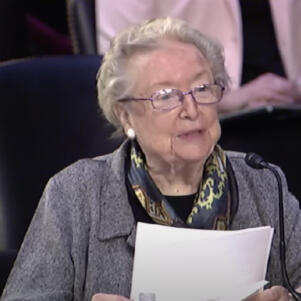The BLOG: Faith and Law
Is Britain a Christian nation?
Rob McFarland | December 9, 2015
Christianity has a long and formal history with Britain. Christianity arrived in the British Isles in 47 A.D., according to sixth century cleric St. Gildas in his work De Excidio et Conquestu Britanniae. Saint Augustine of Canterbury, a Benedictine monk, began his ministry to England in 597 when he formally established the Church of England. Nearly 1,000 years later, Henry VIII was pronounced the head of the Church of England by the 1534 Act of Supremacy.
Much has changed, of course, since the Act of Supremacy formally established the Church of England as the established Church of the realm. Nevertheless, the British monarch remains the Supreme Governor of the Church of England. More than half of the archbishops in the Church of England are permitted to sit in the House of Lords. And the General Synod of the Church of England retain some legislative powers in Britain.
Christianity is undeniably connected to British history, law, and politics. But according to a notable (and lengthy) official report “Britain is no longer a Christian country and should stop acting as if it is.” According to The Telegraph, the report, produced by the Commission on Religion and Belief in Public Life, calls for all public life in Britain “to be systematically de-Christianized.”
The most significant aspect of this new report is its call for development of a new settlement regarding the relationship of faith and law in Britain. What would such a settlement look like? Would men and women of faith be excluded from the public square? Would Imams take seats in the House of Lords? Would the history of Christianity be honored by this new settlement, or purged from English textbooks? Where should the next coronation of the monarch take place? By what right does the monarch rule?
Unsurprisingly, the recommendations of the report are causing a considerable row in England. Many perceive the authors of the report to be grinding axes. But, interestingly, the report stops short of recommending the formal disestablishment of the Church of England. It recognizes that the Church of England has made freedom of belief (or unbelief) possible in public life.
Would secularism be so kind?
Robert L. McFarland is Associate Dean of External Affairs and Associate Professor of Law at Faulkner University’s Jones School of Law.
NBPPluralism







